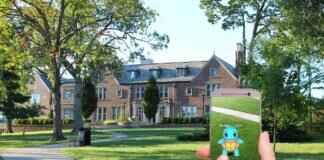This article delves into timeless Christmas movies that enchant children, igniting the holiday spirit and spreading joy. From animated classics to heartwarming live-action tales, these films create unforgettable moments for kids and families alike.
The Importance of Christmas Movies for Kids
Christmas movies play a pivotal role in shaping family traditions and cherished memories. They provide not only entertainment but also valuable lessons about kindness, generosity, and the true essence of the holiday season. These films contribute significantly to children’s emotional and social development.
Top Classic Christmas Movies for Kids
This section highlights some of the most beloved Christmas films that have become staples in many households, showcasing their unique stories and the magic they bring to the holiday season.
- Rudolph the Red-Nosed Reindeer
- Plot Summary: Rudolph, a reindeer with a glowing nose, faces rejection but ultimately saves Christmas by guiding Santa’s sleigh, showcasing resilience and the value of being true to oneself.
- Memorable Characters: From Rudolph to Hermey the Elf and Yukon Cornelius, the film features iconic characters that bring humor and warmth, captivating young audiences.
- Frosty the Snowman
- Plot Summary: Frosty and his friends embark on a thrilling adventure to avoid a melting fate while celebrating the joy of friendship and the spirit of Christmas.
- Lessons Learned: The film teaches children about the importance of friendship, believing in magic, and the joy of the holiday season.
Animated vs. Live-Action Christmas Movies
Exploring the differences between animated and live-action Christmas films reveals unique storytelling styles that captivate young audiences in distinct ways, enhancing the holiday experience.
- Benefits of Animated Christmas Movies: Animated films often feature vibrant visuals and imaginative storytelling, making them particularly appealing to children.
- Advantages of Live-Action Christmas Movies: Live-action films provide relatable characters and real-life scenarios, helping children connect with the stories on a personal level.
Creating Family Traditions with Christmas Movies
Establishing family traditions around Christmas movie nights fosters bonding and creates lasting memories. Here are some tips:
- Setting Up a Movie Night: Create a cozy atmosphere with decorations, snacks, and fun activities to enhance the viewing experience.
- Choosing the Right Movies: Select age-appropriate films that resonate with children’s interests to ensure an engaging experience for all.
Conclusion: The Lasting Impact of Classic Christmas Movies
Classic Christmas movies continue to enchant children, instilling values of love, generosity, and joy. Their timeless stories foster family connections, ensuring that the magic of the holidays is relived year after year.

The Importance of Christmas Movies for Kids
Christmas movies play a pivotal role in shaping the holiday experience for children and families alike. These films are more than just a source of entertainment; they serve as a vehicle for imparting essential values and traditions that can last a lifetime. Through engaging stories and memorable characters, Christmas movies create cherished memories that families can revisit year after year.
One of the most significant aspects of these films is their ability to teach valuable lessons. Themes of kindness, generosity, and the true spirit of the holidays resonate throughout many classic Christmas movies. For instance, children learn the importance of giving and sharing, which are vital components of emotional and social development. By witnessing characters who embody these traits, kids are encouraged to adopt similar behaviors in their own lives.
Moreover, Christmas movies help to establish family traditions. Setting aside time to watch these films together can strengthen family bonds and create a sense of belonging. This shared experience fosters a feeling of unity and joy, making the holiday season even more special. Families often find themselves quoting lines or reminiscing about favorite scenes, which further cements these films in their collective memory.
In addition to entertainment, Christmas movies often introduce children to cultural traditions and values associated with the holiday season. This exposure not only broadens their understanding of different customs but also instills a sense of appreciation for the diversity of celebrations around the world.
In conclusion, Christmas movies are essential for children’s development, offering a blend of entertainment, education, and family bonding. They create lasting memories and instill values that children carry with them into adulthood, ensuring the magic of the holidays is cherished for generations to come.

Top Classic Christmas Movies for Kids
This section delves into the most beloved Christmas films for children, highlighting their unique stories, memorable characters, and the enchanting magic they bring to the holiday season. These films not only entertain but also create lasting memories for families, ensuring a delightful viewing experience for all.
- Rudolph the Red-Nosed Reindeer
- Plot Summary: This classic tale follows Rudolph, a reindeer with a shiny red nose who is initially shunned by his peers. However, he ultimately becomes a hero by guiding Santa’s sleigh through a foggy night, teaching kids the importance of embracing differences and resilience.
- Memorable Characters: The film features iconic characters like Hermey the Elf, who dreams of being a dentist, and Yukon Cornelius, an adventurous prospector. Each character adds humor and warmth, captivating young audiences.
- Frosty the Snowman
- Plot Summary: This enchanting story revolves around Frosty, a snowman who magically comes to life. With the help of children, he embarks on a thrilling adventure to avoid melting, celebrating the joy of friendship and the magic of winter.
- Lessons Learned: The film imparts valuable lessons about believing in magic, the importance of friendship, and the joy of the holiday season, making it a cherished classic.
- The Polar Express
- Plot Summary: A young boy embarks on a magical train ride to the North Pole, where he learns about the spirit of Christmas and the importance of believing. This visually stunning film captivates children with its animation and heartfelt message.
- Key Themes: The movie emphasizes themes of belief, adventure, and the magic of Christmas, making it a perfect addition to any holiday movie lineup.
These classic films not only entertain but also teach valuable lessons about kindness, friendship, and the joy of giving. Watching these movies together as a family can create cherished traditions and foster a sense of togetherness during the holiday season.
In conclusion, the magic of Christmas is beautifully captured in these timeless films, ensuring that children and families alike can enjoy memorable stories that resonate through generations.
Rudolph the Red-Nosed Reindeer
is not just a beloved holiday classic; it is a profound story that resonates with themes of acceptance and friendship. This enchanting tale has captivated generations of children and continues to be a staple during the festive season. The narrative revolves around a unique reindeer, Rudolph, who possesses a glowing red nose that sets him apart from the others.
Initially, Rudolph faces rejection and bullying from his peers, highlighting the challenges of being different. However, the story takes a heartwarming turn when his distinctive feature becomes an asset. When foggy weather threatens to disrupt Santa’s Christmas Eve journey, Rudolph’s bright nose shines through the darkness, guiding Santa’s sleigh and saving the day. This pivotal moment teaches children the invaluable lesson that embracing differences can lead to remarkable outcomes.
Throughout the film, we meet memorable characters such as Hermey the Elf, who aspires to be a dentist, and Yukon Cornelius, a lovable prospector. Each character contributes to the story’s rich tapestry, reinforcing the idea that everyone has unique talents that should be celebrated. Together, they embark on a journey of self-discovery, friendship, and acceptance.
In addition to its engaging plot, the film delivers a powerful message about the importance of kindness and understanding. It encourages children to stand up for those who are different and to recognize the value in diversity. This timeless tale not only entertains but also imparts essential life lessons that are relevant in today’s world.
In conclusion, remains a cherished holiday classic that continues to touch hearts. Its enduring message of acceptance and the celebration of individuality will resonate with children and families for years to come, making it a must-watch during the holiday season.
Plot Summary
Rudolph the Red-Nosed Reindeer is a classic tale that captures the essence of the holiday spirit through the journey of a young reindeer who is different from the rest. With his glowing red nose, Rudolph initially faces rejection from his peers, feeling isolated and alone. This story resonates deeply with children, teaching them about the importance of acceptance and self-identity.
In the heartwarming story, Rudolph is born with a unique feature—his nose shines brightly, making him stand out among his fellow reindeer. Unfortunately, this difference leads to bullying and exclusion from reindeer games. Feeling dejected, Rudolph embarks on a journey of self-discovery and resilience. Along the way, he meets friends like Hermey the Elf, who dreams of being a dentist, and Yukon Cornelius, a prospector in search of silver and gold. Together, they face challenges and learn valuable lessons about friendship and acceptance.
As Christmas approaches, a thick fog threatens Santa Claus’s ability to deliver gifts. In a moment of true heroism, Rudolph’s glowing nose becomes the beacon that guides Santa’s sleigh through the darkness, ultimately saving Christmas. This pivotal moment showcases the power of embracing one’s uniqueness and highlights that our differences can be our greatest strengths.
The film features an array of iconic characters that contribute to its charm. From the lovable and misunderstood Rudolph to the ambitious Hermey and the adventurous Yukon Cornelius, each character adds depth and humor to the story. Their interactions and growth throughout the film help convey important messages about friendship, acceptance, and the true spirit of Christmas.
In conclusion, Rudolph the Red-Nosed Reindeer is more than just a festive tale; it is a story of resilience and the importance of being true to oneself. Its timeless message continues to resonate with audiences, making it a cherished classic during the holiday season.
Memorable Characters
The enchanting world of Rudolph the Red-Nosed Reindeer is filled with a cast of iconic characters who not only bring humor but also heartwarming lessons to young audiences. Each character plays a significant role in delivering the film’s message of acceptance and friendship.
- Rudolph: The protagonist, a reindeer with a distinctive glowing nose, symbolizes the importance of being unique. His journey from being an outcast to a hero teaches children that differences can be strengths.
- Hermey the Elf: A misfit elf who dreams of becoming a dentist rather than making toys, Hermey embodies the message that it’s okay to pursue one’s passions, even if they diverge from traditional expectations. His friendship with Rudolph highlights the value of supporting one another.
- Yukon Cornelius: The adventurous prospector adds a touch of humor and excitement to the story. His quest for silver and gold reflects the adventurous spirit, while his loyalty to Rudolph and Hermey showcases the importance of friendship and teamwork.
These characters not only enrich the storyline but also resonate with children, making the film a timeless classic. Their interactions and growth throughout the film promote essential values, ensuring that audiences of all ages can find joy and inspiration in their adventures.
As the story unfolds, viewers are reminded that embracing differences and supporting each other can lead to remarkable outcomes. The film’s legacy continues to captivate young hearts, making it a cherished holiday tradition.
Frosty the Snowman
is a beloved classic that has enchanted audiences for generations. This heartwarming tale captures the essence of childhood wonder and the joy of winter, making it a staple during the holiday season. The story revolves around a snowman named Frosty, who magically comes to life thanks to a special hat. As he embarks on a delightful adventure with a group of children, he embodies the spirit of friendship and imagination.
The film beautifully illustrates the magic of winter, showcasing how a simple snowman can bring joy and excitement to young hearts. Frosty and his friends face challenges, including the looming threat of melting, which adds an element of suspense to the story. However, it is through teamwork and belief in the impossible that they overcome these obstacles, teaching children valuable lessons about resilience and camaraderie.
As Frosty comes to life, he leads his friends on a thrilling journey to avoid melting away. Together, they experience the joy of friendship, adventure, and the true spirit of Christmas. The story emphasizes the importance of believing in magic and cherishing the moments spent with loved ones during the holiday season.
- Friendship: The bond between Frosty and the children highlights the importance of friendship and support.
- Believing in Magic: The film encourages children to keep their imaginations alive and to believe in the magic of the holiday season.
- Joy of Giving: Frosty’s selflessness and willingness to help others illustrate the spirit of giving that embodies Christmas.
In conclusion, is more than just a holiday film; it is a celebration of childhood joy and the magic that comes with the winter season. Its timeless message continues to resonate with audiences, making it a cherished favorite for families during the holidays.
Plot Summary
Frosty and his friends embark on an exhilarating journey filled with challenges and laughter, striving to avoid a melting fate while embracing the true essence of friendship and the joyous spirit of Christmas. As they traverse through snow-covered landscapes, they encounter various obstacles that test their bonds and resolve.
Throughout their adventure, Frosty, a cheerful snowman brought to life by a magical hat, finds himself surrounded by a group of loyal friends, including children and other whimsical characters. Together, they face the threat of warmth and the approaching spring, which looms as a potential danger to Frosty’s existence. This heartwarming tale not only entertains but also imparts valuable lessons about teamwork and the importance of believing in the impossible.
The journey is filled with delightful moments, as Frosty and his companions celebrate the magic of the holiday season. They engage in playful snowball fights, build snow forts, and share stories by the fire, fostering a sense of camaraderie that highlights the beauty of friendship. As they navigate their challenges, the group learns that the spirit of Christmas lies not only in the festivities but also in the connections they forge along the way.
In the climax of their adventure, Frosty and his friends devise a clever plan to outsmart the looming threat of melting, showcasing their creativity and resilience. The climax serves as a reminder that with determination and support from friends, any obstacle can be overcome.
As the story unfolds, viewers are reminded of the magic that comes with the holiday season, making it a timeless classic that resonates with audiences of all ages. Frosty’s journey is a celebration of joy, adventure, and the enduring spirit of Christmas, leaving a lasting impression on the hearts of children and families alike.
Lessons Learned
Lessons Learned from Classic Christmas Movies
Classic Christmas movies are not just entertaining tales; they are rich with valuable lessons that resonate with children and families. These films often encapsulate themes of friendship, believing in magic, and the joy of the holiday season, making them timeless treasures that are revisited year after year.
- Friendship and Acceptance: Many holiday films emphasize the significance of friendship. For instance, in “Rudolph the Red-Nosed Reindeer,” the story highlights how embracing differences can lead to meaningful connections and acceptance. Children learn that true friends support each other, regardless of their unique qualities.
- Believing in Magic: The enchanting elements in movies like “Frosty the Snowman” remind children of the importance of imagination and belief in the extraordinary. This belief fosters creativity and wonder, essential traits that enrich childhood experiences.
- The Spirit of Giving: Christmas movies often showcase the joy of giving and sharing. Films like “The Polar Express” illustrate how acts of kindness can bring happiness not just to the giver, but also to the recipient, reinforcing the idea that generosity is a core value during the holiday season.
- Family Bonds: The narratives often center around family, teaching children about the importance of familial love and togetherness. These stories encourage families to cherish their time together, creating lasting memories that strengthen their bonds.
In conclusion, classic Christmas movies serve as a wonderful medium for imparting essential life lessons. They not only entertain but also guide children in understanding the values of friendship, magic, generosity, and family. As families gather to watch these films, they reinforce the importance of these lessons, ensuring that the spirit of the holidays lives on in each generation.

Animated vs. Live-Action Christmas Movies
When it comes to celebrating the holiday spirit, Christmas movies play a pivotal role, especially for children. The debate between animated and live-action films is a fascinating one, as each format brings its own unique charm and storytelling techniques to the table. Understanding these differences can help parents choose the best films to enhance their children’s holiday experience.
Exploring the Unique Storytelling Styles
Animated Christmas movies often feature vibrant colors and imaginative characters that capture the attention of young audiences. Films like “The Polar Express” and “How the Grinch Stole Christmas” use animation to create visually stunning worlds filled with magic and wonder. These films can transport children to fantastical realms, igniting their imagination and creativity.
On the other hand, live-action Christmas movies, such as “Home Alone” and “Elf”, present relatable characters and real-life scenarios. This relatability allows children to connect with the stories on a more personal level, understanding the themes of family, friendship, and generosity. The performances of real actors can evoke genuine emotions that resonate deeply with viewers.
Engagement and Emotional Impact
Both formats have their own strengths in engaging young audiences. Animated films often include catchy songs and whimsical plots that maintain children’s interest, while live-action films may incorporate humor and relatable situations that spark laughter and joy. This emotional connection is crucial for children as they learn valuable lessons about kindness, sharing, and the true spirit of Christmas.
Conclusion: Choosing the Right Format for Your Family
Ultimately, the choice between animated and live-action Christmas movies depends on personal preference and the values parents wish to impart. Each format offers unique storytelling styles that can enhance the holiday experience, making it essential to explore both options. By doing so, families can create lasting memories and traditions that celebrate the magic of the season.
Benefits of Animated Christmas Movies
Animated Christmas movies hold a special place in the hearts of children and families alike. Their unique blend of vibrant visuals and imaginative storytelling not only entertains but also inspires young minds. Here are some of the key benefits that animated films bring to the holiday season:
- Visual Appeal: The bright colors and enchanting animation styles are captivating for children. This visual stimulation keeps them engaged and makes the stories more memorable.
- Imagination and Creativity: Animated films encourage children to think creatively. They often feature fantastical worlds, magical creatures, and whimsical plots that spark imagination and wonder.
- Heartwarming Messages: Many animated Christmas movies convey important life lessons about love, friendship, and generosity. These messages resonate with children and help them understand the spirit of the holidays.
- Family Bonding: Watching animated Christmas movies together creates precious family moments. These films often become part of holiday traditions, strengthening family bonds and creating lasting memories.
- Accessibility: Animated films are typically designed for a younger audience, making them easy for children to understand and enjoy. This accessibility allows for family-friendly viewing that everyone can appreciate.
In conclusion, animated Christmas movies are more than just entertainment; they are a vital part of childhood experiences during the holiday season. By fostering creativity, imparting valuable lessons, and creating opportunities for family bonding, these films ensure that the magic of Christmas is felt by all. So, gather your loved ones, grab some popcorn, and enjoy the heartwarming adventures that animated films have to offer!
Advantages of Live-Action Christmas Movies
Live-action Christmas movies hold a special place in the hearts of many families, offering a unique blend of realism and emotional connection. Unlike animated films, these movies present characters that children can see as reflections of themselves, making the narratives more relatable and impactful.
One of the primary advantages of live-action films is their ability to depict real-life scenarios. Children often find it easier to connect with stories that feature characters who face challenges similar to their own. For instance, themes of friendship, family, and overcoming obstacles resonate deeply when portrayed by real actors. This connection fosters a better understanding of the holiday themes of love, generosity, and community.
Moreover, live-action films can showcase a range of emotions and experiences that children may encounter in their own lives. The visual representation of these emotions helps children learn to navigate their feelings and understand the importance of empathy and kindness. For example, a character experiencing the joy of giving or the sadness of loss can teach valuable lessons about the complexities of the holiday season.
Additionally, live-action Christmas movies often feature iconic settings and festive decorations that enhance the holiday spirit. The sights and sounds of a bustling Christmas market or a cozy family gathering can transport children into a world filled with magic and wonder, making the viewing experience even more immersive.
In conclusion, live-action Christmas movies provide an invaluable opportunity for children to engage with relatable characters and real-life scenarios. By connecting with these stories on a personal level, children not only enjoy entertaining narratives but also gain a deeper understanding of the themes that make the holiday season so special.

Creating Family Traditions with Christmas Movies
Establishing family traditions around Christmas movie nights is a wonderful way to foster bonding and create lasting memories. These cherished rituals enrich the holiday experience for both children and parents, transforming ordinary evenings into magical moments filled with laughter, joy, and togetherness.
When families gather to watch classic Christmas films, they engage in a time-honored practice that not only entertains but also strengthens familial bonds. The act of choosing a movie together, preparing snacks, and snuggling up under cozy blankets creates a sense of anticipation and excitement that is palpable. This shared experience allows families to connect, reminisce, and create stories of their own that will be recounted for years to come.
Setting Up a Cozy Movie Night
- Choose a Theme: Select a theme for the movie night, such as animated classics or heartwarming live-action films.
- Create a Cozy Atmosphere: Dim the lights, arrange comfortable seating, and add festive decorations to enhance the holiday spirit.
- Prepare Delicious Treats: Make popcorn, hot cocoa, or holiday-themed snacks that everyone can enjoy while watching.
Choosing the Right Movies
Selecting age-appropriate films is crucial to ensure that all family members can enjoy the movie night. Consider including a mix of beloved classics and newer releases that resonate with children’s interests. Some popular choices include:
- Home Alone – A hilarious adventure that teaches the importance of family.
- The Polar Express – A magical journey that emphasizes belief and wonder.
- Elf – A heartwarming story that highlights the joy of Christmas spirit.
In conclusion, creating family traditions around Christmas movie nights is an enriching practice that brings families closer together. By establishing these rituals, parents and children alike can look forward to a season filled with love, laughter, and unforgettable memories.
Setting Up a Movie Night
can transform a simple evening into a cherished family event. Here are some tips and tricks to create a cozy atmosphere that enhances your viewing experience:
- Choose the Right Location: Select a comfortable space in your home, such as the living room or a cozy den. Ensure there is enough seating for everyone.
- Lighting: Dim the lights or use soft, warm lighting to create a relaxed ambiance. Consider using fairy lights or candles for a magical touch.
- Cozy Seating: Arrange blankets, cushions, and pillows to create a snug seating area. This invites everyone to snuggle in and enjoy the movie.
Decorations can also enhance the mood:
- Festive Touches: Add holiday-themed decorations like garlands, ornaments, or themed tableware to set the scene.
- Movie Posters: Hang posters of classic films on the walls or create a small display area to showcase your movie selection.
Snacks are a vital part of the movie night experience:
- Popcorn: Offer various flavors like butter, caramel, or cheese to cater to different tastes.
- Candy and Treats: Include a selection of candies, chocolates, and baked goods to satisfy sweet cravings.
- Drinks: Provide a range of beverages, from hot chocolate to soda, ensuring everyone has something to enjoy.
To make the night even more special, consider incorporating activities:
- Pre-Movie Games: Engage everyone with fun games related to the movie theme before the screening.
- Discussion Time: After the movie, have a brief discussion about favorite moments or lessons learned, enhancing the bonding experience.
By following these tips, you can create a memorable movie night that becomes a cherished family tradition, filled with laughter, love, and enjoyment.
Choosing the Right Movies
is crucial for creating a memorable family movie night. When selecting films, consider the age-appropriateness and the interests of your children. This ensures that all family members can engage with the story, making the experience enjoyable for everyone.
To make the most of your movie night, here are some key factors to consider:
- Age Suitability: Choose films that are suitable for your children’s ages. Younger kids may enjoy animated films with bright colors and simple plots, while older children might appreciate more complex stories.
- Interests: Select movies that align with your children’s interests. If they love animals, consider films like Finding Nemo or Zootopia. If they enjoy adventure, classics like The Lion King can be a hit.
- Positive Messages: Look for films that convey valuable lessons about friendship, kindness, and perseverance. Movies like Inside Out and Up not only entertain but also teach important life lessons.
- Family Engagement: Involve your children in the movie selection process. This not only makes them feel included but also ensures that they are excited about the film choice.
By thoughtfully selecting films that resonate with your children’s interests, you can ensure that everyone enjoys the movie night. This approach fosters a more engaging and memorable experience for the entire family, making it a cherished tradition that they will look forward to year after year.
In conclusion, taking the time to choose the right movies can transform a simple movie night into a joyful family bonding experience. Embrace the opportunity to explore new films together and create lasting memories.

Conclusion: The Lasting Impact of Classic Christmas Movies
Classic Christmas movies hold a special place in the hearts of children and families alike. These films not only entertain but also instill core values such as love, generosity, and joy. As families gather around the television during the holiday season, they are not just watching a movie; they are creating cherished memories that can last a lifetime.
The timeless stories presented in these films foster family connections and encourage discussions about important themes. For instance, movies like Rudolph the Red-Nosed Reindeer and Frosty the Snowman teach children about acceptance, friendship, and the spirit of giving. These messages resonate deeply with young audiences, making the holidays feel magical and meaningful.
Moreover, the tradition of watching these classic films together can enhance the holiday spirit. Families often find themselves laughing, crying, and reminiscing about their own experiences, which strengthens their bonds. The emotional impact of these movies can be profound, as they remind us of the importance of coming together during the festive season.
Additionally, as children grow, they pass down these beloved films to the next generation, ensuring that the magic of the holidays continues to thrive. This cycle of sharing classic Christmas movies creates a sense of continuity and belonging, enriching family traditions.
In conclusion, classic Christmas movies are more than just entertainment; they are a vital part of the holiday experience that enchant children and adults alike. By instilling values of love, generosity, and joy, these films ensure that the magic of the holidays is relived year after year, creating lasting memories for families everywhere.
Frequently Asked Questions
- What are some classic Christmas movies for kids?
Some beloved classics include Rudolph the Red-Nosed Reindeer, Frosty the Snowman, and The Polar Express. These films are not only entertaining but also teach valuable lessons about kindness and friendship.
- Why are Christmas movies important for children?
Christmas movies help create cherished family traditions and memories. They provide entertainment while imparting essential values like generosity, love, and the spirit of giving, making them a vital part of childhood development.
- How can I create a cozy movie night for my family?
Set the mood with festive decorations, comfy blankets, and tasty snacks. Choose age-appropriate films that everyone will enjoy, and consider incorporating fun activities like making holiday crafts or sharing favorite holiday memories.
- What is the difference between animated and live-action Christmas movies?
Animated movies often feature vibrant visuals and imaginative storytelling that captivate young audiences, while live-action films provide relatable characters and real-life scenarios that help children connect with the stories on a personal level.
- Can watching Christmas movies foster family connections?
Absolutely! Establishing a tradition of watching Christmas movies together can strengthen family bonds, create lasting memories, and enhance the overall holiday experience for both kids and parents.















